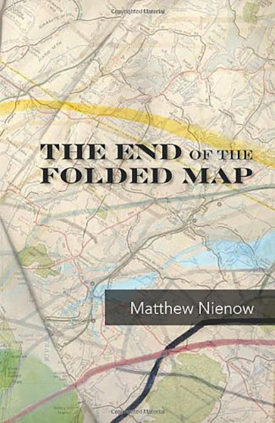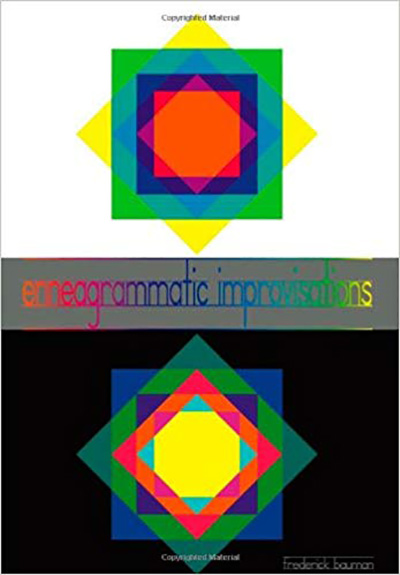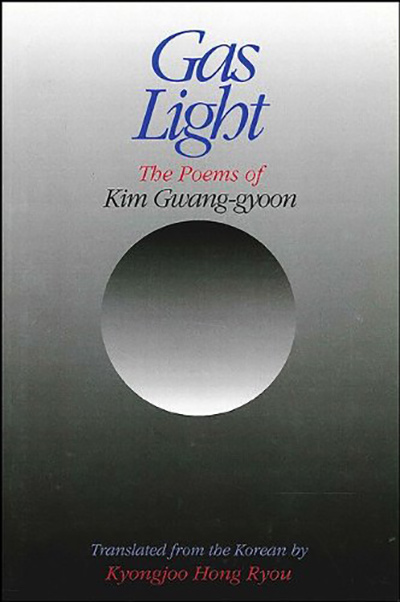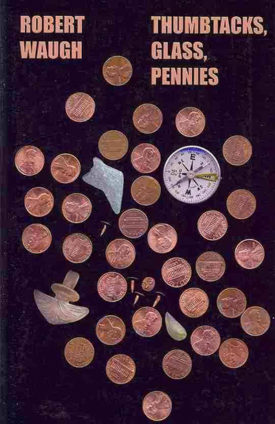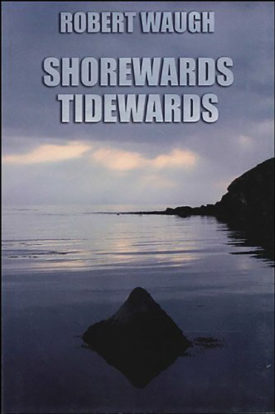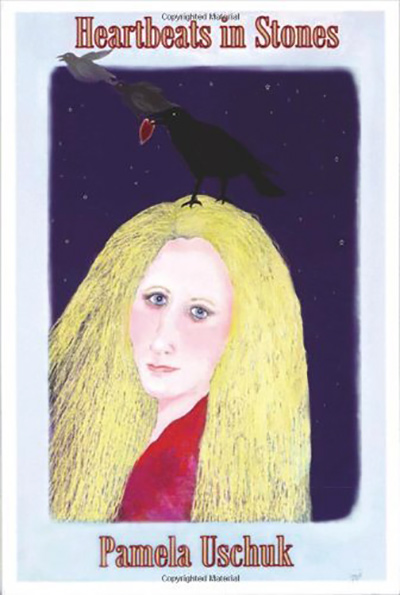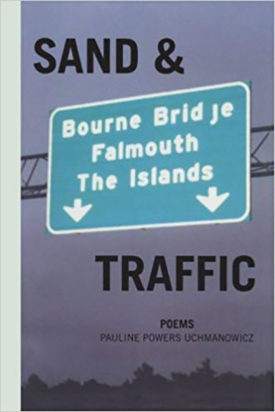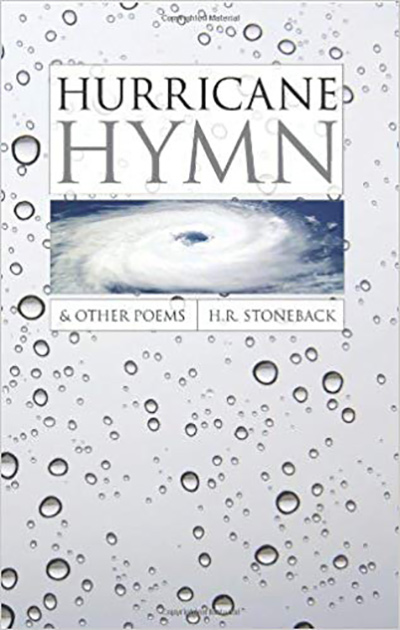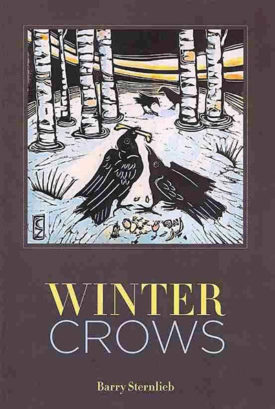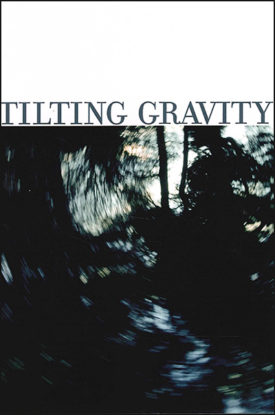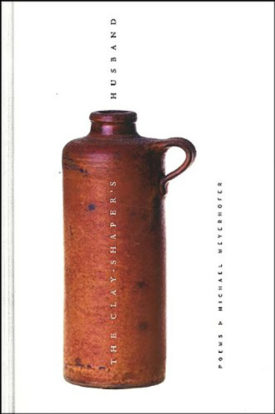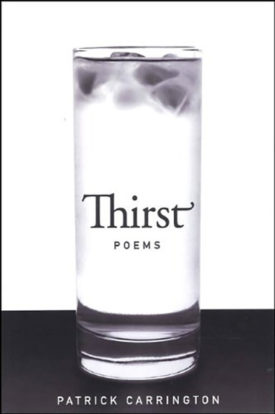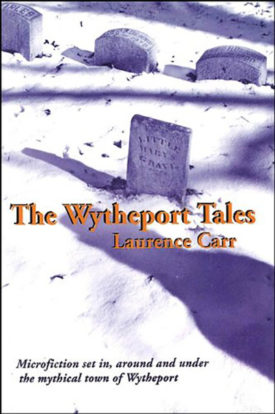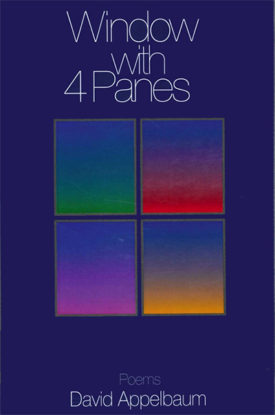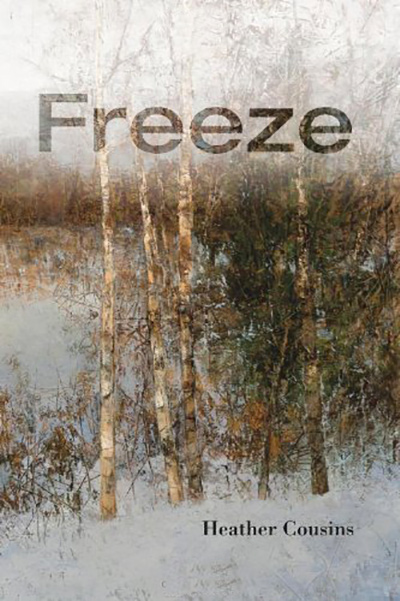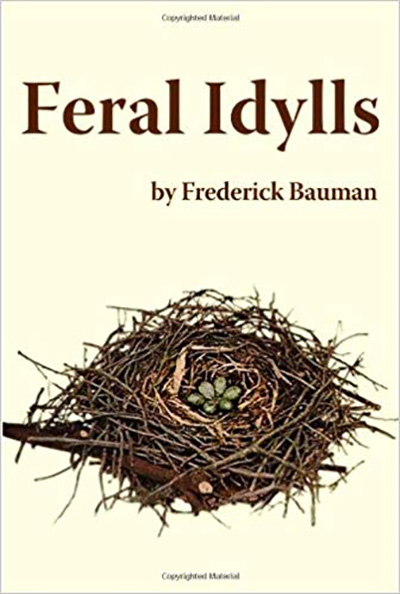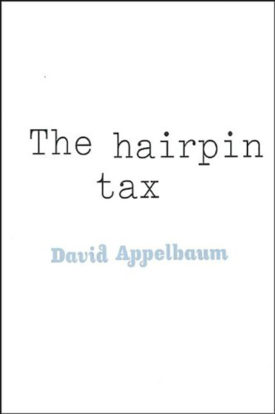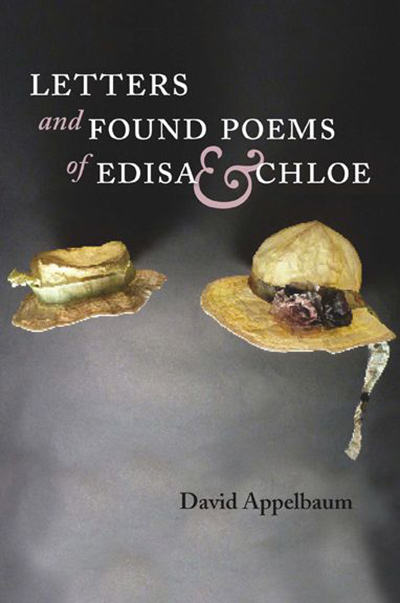—Pauline Uchmanowicz
-
Winner of the Codhill Poetry Chapbook Award for 2010, Matthew Nienow’s The End of the Folded Map charts the jagged frontiers of memory with lines of metrical precision and imagistic inventiveness, rendering an atlas of our collective humanness.
-
The poems in this volume are experimental in nature. They came out of a study of the enneagram—a symbol best described in P. D. Ouspensky's In Search of the Miraculous. While looking for a way to experience the laws expressed in the enneagram, Frederick Bauman devised a poetic form of nine verses of three lines each. The poems are presented in the order written and then the stanzas are rearranged in the order 9, 3, 6, 1, 4, 2, 8, 5, 7. Readers interested in the enneagram are referred to Mr. Ouspensky's book and the “Holy Planet Purgatory” chapter of G. I. Gurdjieff's Beelzebub's Tales to His Grandson, which does not mention the enneagram but discusses the laws it symbolizes.
2007 | 110 pages
-
A Short Piece It must be that the azaleas Bloom at dawn And fall at dusk. Over the low pine grove Behind the rocks in Samchung Dong They droop Whenever the clouds pass. All through April Unnoticed by any This year's azaleas also Must be blooming in the shade And falling in the shade. —Kim Gwang-gyoon
2007 | 152 pages
-
I pick up thumb-tacks in the street and put them in my pocket. Some I use to stick up times on the corkboard, some I put back in the desk. Once a tack stuck straight through the ball of my foot as I ran straight on it, the ball of the foot came down, the heel lifted off pushing the ball of the foot down full on the tack. Running off I stepped off pulling off blind—leg, hip, spine, neck and tongue like a crack of lightning. If you want to keep time straight, you pick up tacks and put them in your pocket. —from "Thumbtacks, Glass, Pennies"
2009 | 64 pages
-
Full Moon Tide I want to stop listening.
I’m tired
of making sense, of having to listen, of taking the ocean in day after day, of holding on to its labor; you have to let go—and it blanks out lost to the magnification of mind; when I fall asleep the muscle won’t let loose, my back slides, my hip hurries for doorways, my fingers talk as though they were held by a talking hand for an instant that turns off night, and it’s still noon, and the talking ocean just said it, just spoke the words that mean this loss is really here and you can’t turn it away and the doorways are slamming shut, the breakers are slamming down, the magnification of mind slamming down. I’m listening for doorways. —from Shorewards Tidewards2007 | 36 pages
-
Out of stockThe poet's eye never misses the incongruity of things that cuts to the bone, "an obsidian scalpel of love" that keeps racing with her in the space between life and death, adoration and hatred. It may be that "balance is axiomatic," but always it is imperiled, a saving grace necessary, and the eye nervously glancing between heaven and earth. "Pamela Uschuk is a political poet, defiant in the face of injustice, as well as a poet of Eros. She's nobody's fool. She resurrects in her poems the brutalized, the murdered, the lost of the world—those who have no voice of their own. She pulls them close. And when she turns to the world's gliding wonders, she does so with a precise eye and everything she sees is absorbed by her uniquely compassionate voice."
—Dennis Sampson, author of Constant Longing and Needlegrass
2005 | 44 pages
-
Uchmanowicz's poetry lives in its form and its formalism enlivens the line and space between images "in perpetual flight." Breathless accents, a parade of local color, deep sympathy with existence, the work is a continual reaffirmation of the poet's need for life. "Uchmanowicz portrays a 'year-rounder's' Cape Cod of fickle weather, untimely deaths, and gritty sensuality. Her taut, precise poems are vivid enough to grab a reader at first sight and rich enough to reward a second reading."
—Chronogram
2004 | 32 pages
-
Out of stockPoetry cannot perform search and rescues. Words are not water or food or shelter. Grief cannot put a roof over storm-refugees. Compassion's not a substitute for action. Come in from the wind, let words restore power. Come in under the blue tarp of this Muse.... —from "Hurricane Hymn
2009 | 148 pages
-
"Winner of the Codhill Poetry Chapbook Award for 2009," Elizabeth Rees's Tilting Gravity shimmers like moonlight on tidewater, illuminating the ebb and flow of brokenness and recovery with rippling imagination and lyrical elegance."
—Pauline Uchmanowicz, final judge
2010 | 36 pages
-
Out of stockODE TO DOGS I am tired of hearing about dogs used as metaphors for the uncivilized. Imagine a world in which humans possessed at least twenty times as many olfactory receptors, able to distinguish the tang of cancer rising musk-like from the bedsheets next to a smoldering ash tray, able to detect that one drop of blood in every five quarts of water, to know what you did last night no matter how many times you soap-scrubbed the evidence. It does not take savagery but more love than we can muster to lick the hand you've sniffed, to love despite the perfume of sins we wear each day like a halo.
2008 | 38 pages
-
"Final Finalist for the Codhill Poetry Chapbook award for 2008, Sibyl James’s Pistols and Hearts captures the beauty and ruggedness of daily life in Mexico through inventive lyricism. Oscillating between English and Spanish, between declarations of love and regret, between the oracular and the ordinary, a transcontinental vision emerges, both deeply personal and fiercely public."
—Pauline Uchmanowicz, final judge
2009 | 36 pages
-
Out of stockPoems Searching for Things to Worship Sorting through fluttering debris of thick boyhood days, tangle of jungle browned with our absence, I remember how you cupped water at Cedar Creek, your hands a chalice. And flowers you planted near the bank to make it your church, somewhere to sit in the greening comfort of a private prayer. A place one might see God and not be surprised.
"Winner of the Codhill Poetry Chapbook Prize for 2006, Patrick Carrington's Thirst reads like a novena, a plea for understanding and mercy." —Pauline Uchmanowicz, Final Judge2007 | 32 pages
-
Out of stockMicrofiction set in, around and under the mythical town of Wytheport Sometimes angst-ridden, sometimes whimsical, sometimes meditative, these short "biographs" depict the life and times of a unique place and its haunting residents. The Wytheport Tales draws inspiration from a range of authors: Dante, Carroll, Joyce, Eliot and Masters, as well as fantasists such as Cabell, Eddison and MacDonald.
" 'Time is warping in the palace,' Laurence Carr observes in The Wytheport Tales. And our nights and days are warping in these sly, canny (or are they uncanny?) poems. Most interested in the world when that world is changing, and by turns in-flected, de-flected, and re-flected, here fanciful, there matter of fact, Carr's tales summon twilight presences from the edges of experience, dark, restless, playful, and urgent."
—Robert Polito, Director, New School Writing Program
"Though it seems to begin in the land of Dylan Thomas's Nightwood, it extends beyond that into wonderfully evocative, mythic worlds that strike me as utterly original in its language and pace."
—Robert H. Waugh, The Monster in the Mirror: Looking for H. P. Lovecraft
"With The Wytheport Tales, Laurence Carr gives us a work that shimmers and twists, that undulates across the mind's eye like a tapestry. At times homely, at others baroque, at still others nightmarish, the collection fits multitudes between its covers. I'm eternally grateful to have been introduced to a sampling of Wytheport's denizens, and look forward to many return visits."
—John Langan, Mr. Gaunt
2006 | 54 pages
-
Out of stockThe ambiguity of snow Dog wishes, buried in squinty sun may never sprout deeper dreads down under may deface even terror’s stun gun before bright dawn pours on white cloth buffered over white strain and shows no blood on the collar— but the dead ground, bone’s crypt, dazzles, unwinds a drape to hide a corpse stuffed in.
Read a review of Window with 4 Panes, from the May 2009 issue of Chronogram magazine.2009 | 78 pages
-
Out of stock
"Winner of the 2012 Codhill Poetry Chapbook Award, Heather Cousins's Freeze, as sparse and elegant as winter branches, illuminates how time is both fixed and divisible, the human paradox both archetypal and mutable."
—Pauline Uchmanowicz, Final Judge
2013 | 30 pages
-
Out of stockAbraham Burickson's chapbook Charlie is an exploration of what it means to find oneself living without an instruction manual in a world filled with strangers. The poems follow Charlie and Sal, two very particular Everymen, as they navigate the emotional and intellectual straits of their lives, seeking meaning, pleasure, and some sense of self. The road is treacherous; pronouns jumble, rhythms overwhelm, and the intensity of sensual experience causes these poems to shimmer with longing and uncertainty. Charlie guides the reader on a journey that is as enticing as it is unsettling.
2010 | 45 pages
-
With each poem in this series, Bauman explores the life of an animal native to the Catskill region, delving into their secret suffering, fear, and determination. Through their daily struggles, he reveals the interconnected nature of our world and our shared fears. In his final poem, he extends these same fears and struggles to man through the mythic figure of Gilgamesh. Richly detailed and poignant, Feral Idylls asks us to consider existence and our place in the world.
2010 | 56 pages
-
Out of stockThe fragmentary poems are of flight, written in the full fury of movement from a known habitat to one full of strangeness. The uncanny is their constant envoy. They enter into things at an obtuse angle and forget their origin, beyond good sense, beyond good taste and use of time.... Perhaps a nomadic ear is able to make very subtle discrimination in text. Such an ear is at work here.
—from the Afterword
2010 | 32 pages
-
Conceived first as a correspondence between two woman, Letters and Found Poems expresses the mystery of their intimacy in their quotidian existence in rural New York. The complexity of Chloe’s affairs creates a damaging separation that brings a tragic turn of events. A collection of poems each had written to the other serves as a supplement to the story.
2012 | 85 pages


